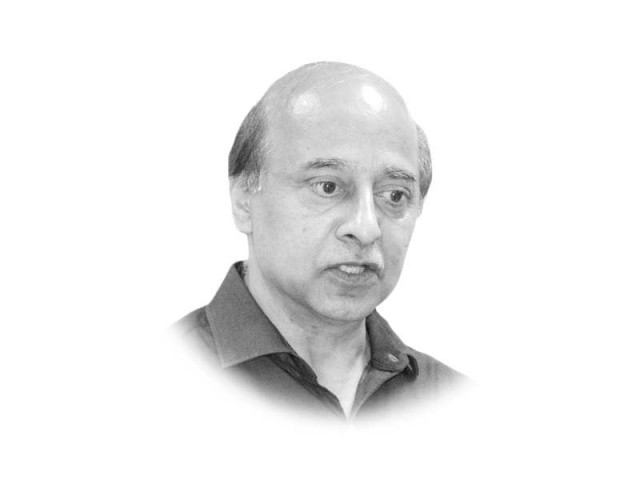Orlando shooting & US media narrative
“The killer, whose name I will not use or ever say, was an Afghan, of Afghan parents, who immigrated to the US”: Trump

The writer heads the independent Centre for Research and Security Studies, Islamabad and is author of Pakistan: Pivot of Hizbut Tahrir’s Global Caliphate
Much before the police began dealing with the aftermath of the massacre inside the club and trying to ascertain possible motives of the shooting, leading US media and political personalities had already started linking the shooting, the worst in US history, to the IS. This also underscored how the media plays a central role in shaping narratives, however misplaced. It began with Wolf Blitzer, the veteran host of CNN’s “The Situation Room”. Hardly a minute into his interview with Afghanistan’s former president Hamid Karzai, Blitzer jumped to a brazenly lopsided question: “What do you think would motivate for one to go out and pledge allegiance to IS?”
Mr Karzai dealt with the question prudently. The killer was born to Afghan parents and was raised in the US, and if there was any IS influence, we should look at it from the US perspective, said the former president before Blitzer interjected with another blistering question — do you think the killer had IS supporters based in Afghanistan? Karzai blunted the question by saying even the Afghan Taliban are out there fighting the IS. This came across as the most bizarre sequence of questioning by a senior journalist but it made quite evident the superficial, sloppy, one-way — whether advertent or otherwise — characterisation of issues that the US media usually indulges in.
Similarly, former Republican presidential candidate Rubio launched a rant too, saying that common sense tells you that the perpetrator specifically targeted the nightclub because of the views that exist among radical Muslims. Donald Trump stretched the argument further, linking the attack to an incompetent immigration policy: “The killer, whose name I will not use or ever say, was an Afghan, of Afghan parents, who immigrated to the US.” He, in fact, attempted to stir up fresh fears and xenophobia by saying that President Obama’s “national security policies allowed attacks like the mass killing in Orlando. Barring a change in course, terrorists would leave Americans without our country.” He even called for Nato to change its focus to stop terrorism.
The likes of Trump simply wilfully tried to turn the Orlando incident into a huge cash cow to extract political leverage, despite the fact that every year, a staggering 30,000 Americans lose their lives to gun violence i.e., 10 times the number of the 9/11 victims, and six times the number of soldiers lost in the war on terror. The Orlando shooting laid bare the contradictions, and the skewed and one-sided views that currently polarise public opinion in the US on issues of Islamophobia, the IS, Afghanistan and Pakistan.
While CNN is considered to be a balanced global broadcaster, it too often becomes a partner in proliferation of paradoxical, one-sided, self-righteous, right-wing views. Blitzer’s questions to Karzai offer a glaring example of this. It also reflects how American public opinion is often held hostage to opinions — based on perceptions that are unsubstantiated by facts — by political and media icons like Trump, Rubio and Blitzer. These narrative are often devoid of introspection on the role of US state institutions in the creation of non-state actors such as the Afghan mujahideen, and the anti-Qaddafi and anti-Damascus militants.
The right-wing US media and politicians abhor revisiting history. They love to live in the present and therefore mostly keep talking of symptoms, without mentioning the root causes of the malaise. And hence we see simplistic recipes based on tackling immigration, Muslims or the IS, without referring to al Qaeda, which remains the target of the US-led Operation Resolute Support in Afghanistan. Intriguing indeed.
Published in The Express Tribune, June 15th, 2016.
Like Opinion & Editorial on Facebook, follow @ETOpEd on Twitter to receive all updates on all our daily pieces.















COMMENTS
Comments are moderated and generally will be posted if they are on-topic and not abusive.
For more information, please see our Comments FAQ